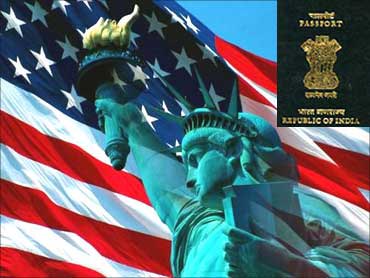A recent Congressional report cited that the probability of retaliation against the United States in the WTO is high if the H1B Visa dispute between the US and India translates into a settlement issue. The US increased the fees for H1B and L1 Visas in mid-2016, prompting India to drag the US to the WTO over the issue.
The US government plans to use the irrational increase in Visa fees to fund infrastructure, claiming that more spending on infrastructure will only benefit workers and students from other countries. The Congressional report states that if the WTO takes up the matter for discussion, it might be declared that the areas of dispute that the US is being challenged on, are in violation of the GATS obligations. This will not only result in the matter ending on a settlement note, but will also prompt other WTO member states to question policy decision of the US government, especially when it comes to the interest of foreign nationals. Thousands of students and workers travel to the United States to explore better opportunities, making the US one of the most prominent destinations. With this move, however, the report says, countries might see the United States in bad light.
Moreover, the WTO can pull up the US for regulatory compliance issues if certain policies concerning foreign nationals aren’t amended.
Details of the India-US Visa dispute
India presented its case to the WTO dispute resolution body in March 2016, claiming that the increase in the Visa fee is detrimental to the interests of not just India workers, but also workers from other countries. As a matter of fact, the move is certain to impact several Indian IT professionals who are presented with project opportunities in the US, enabling them to explore new turf and contribute constructively to the company’s global image. With the increase in Visa fees, companies have to spend more to send their employees to the US on on-site projects.
India alleged that the US is in blatant violation of the GATs obligations, also going on to state that the policy discriminates against service providers from countries other than the US. The GATS obligations are binding on all WTO countries, and violating the GATS regulations will lead to action against the member country.
The report was prepared by CRS, an independent research-oriented wing of the United States Congress.
In addition to the Visa dispute, the US also lodged a case with the WTO dispute resolution body, stating that India’s ban on US poultry imports seriously affects the trade balance between the two countries, considering that the US is the world’s largest exporter and producer broiler meat. . India banned poultry imports from the US and a few European countries to prevent its citizens from being inflicted with Avian flu. The US believes that India’s decision to ban poultry imports will prompt other countries to do the same.
